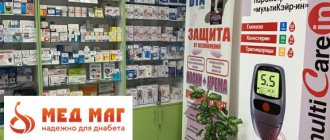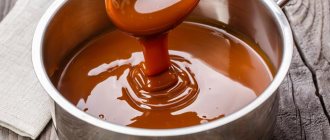Does coffee make teeth yellow?
All people's teeth turn yellow, but for everyone the process occurs with different intensity. The degree of pigment penetration depends on the following factors:
- Smoothness and density of the enamel layer of teeth. People have different densities of tooth enamel. These properties are inherited. Some people have smooth enamel to which nothing sticks. Others have a porous, rough surface that traps pigments, causing brown or yellow spots to quickly appear. Therefore, people can safely and without restrictions drink the drink, but others cannot afford it.
- Content of organic acids in the drink. There is evidence that some varieties contain more organic acids, which destroy enamel and dentin. This is what makes Robusta different. Mocha and Arabica contain much less of this substance. For lovers of the Robusta variety, the enamel darkens faster.
- Number of cups drunk per day. To prevent your teeth from changing color, you should drink no more than two cups of black coffee daily and take regular care of your oral cavity.
Many people have naturally yellowish teeth, and the pigments contained in coffee enhance it. Smoking along with drinking coffee increases the rate of darkening of the enamel.
Stains and stains from coffee on teeth: how to whiten with products from the pharmacy?
Pharmacy products:
- Whitening toothpastes in combination with hard brushes.
- An electric toothbrush. High speed allows you to thoroughly clean your teeth in a short time from fresh yellow plaque.
- Whitening strips . An effective, but very expensive method. For whitening, just stick the strips on your teeth and leave them on for 30 minutes. The result is achieved after 2 weeks of use.
- Teeth whitening gels . Safe and affordable product. Apply to clean teeth. The gel will gradually dissolve. Apply daily until the desired result is achieved. But no more than 2 weeks in a row.
- Whitening trays. A very effective remedy. Whitens the oldest yellow stains. Should be used very carefully. Strictly according to the instructions. An overdose can lead to the destruction of enamel.
- Whitening sticks. Mild whitening agent. More suitable for preventing plaque. Used most often after drinking coffee directly to remove fresh plaque.
Why do stains appear on teeth?
It’s not just this drink that causes stains on your teeth. Black tea, red wine, colored soda and fruit juices have the same properties. If the enamel is healthy and smooth, then dark spots practically do not form. Pigments are deposited in porous enamel, as well as in its chips and cracks. For this reason, spots appear. Freeze-dried coffee has a greater coloring effect compared to natural coffee. If your teeth have darkened, then it’s time to think about their health and see a dentist to strengthen the enamel.
Can coffee cause toothache?
Coffee by itself cannot cause toothache. Problems arise when a person has sensitive enamel and drinks a very hot or sweet drink.
Thus, information about the dangers of coffee for health and the color of tooth enamel is a little exaggerated. To ensure that coffee ceremony lovers do not have negative consequences after it, it is necessary:
- adhere to the rules of admission;
- maintain oral and dental hygiene;
- carry out preventive measures.
If everything is done correctly, then there will be no more harm from drinking this drink than from any other.
Is coffee harmful to teeth or is it just a cosmetic defect?
The drink itself is not harmful. On the contrary, the substances contained in it suppress the activity of bacteria that cause caries. But this only applies to natural and unsweetened coffee. Sugar has a negative effect on enamel. It creates a nutrient medium for the proliferation of carious microorganisms. The drink is usually drunk hot. And high temperatures adversely affect the integrity of the enamel, forming microcracks. Also, the negative effect increases with temperature changes. Therefore, it is not advisable to drink coffee with ice cream, wash it down with cold water, or drink it outside in cold weather.
Is it possible to drink coffee after brushing and whitening your teeth?
We are sometimes asked how long after brushing our teeth we can start drinking coffee. But it all depends on what kind of cleaning you have in mind. After all, we can talk about a daily hygiene procedure or professional whitening from a specialist.
If you just brushed your teeth, you can drink coffee right away. Just remember to brush them at least twice a day and you'll be fine.
But to protect yourself from plaque after professional cleaning, refrain from drinking the drink for at least a day. For the second course you can drink a little latte. Then you can return to your normal routine.
How to whiten your teeth
Approximately 85% of plaque is removed with a regular brush and toothpaste. But this only applies to teeth with healthy enamel and if plaque is removed daily. If you don't brush your teeth regularly and don't take good care of your oral cavity, hard plaque forms, which can only be removed with the help of a dentist. Currently, there are many whitening pastes, folk remedies to combat plaque, and professional types of dental cleanings.
There are many tooth whitening toothpastes, for example:
- Colgate Optic White.
- "New Pearl - Whitening."
- "Blendamed 3D White LUXE".
- "SILCA Arctic White".
- "ROCS - Sensational whitening."
These products, when used regularly, are quite effective in combating dye deposits. To enhance the effect of the paste, you can use an electric brush. And also use special products to remove plaque.
These include:
- whitening gel;
- whitening strips;
- sticks;
- trays with whitening composition;
- pencil.
These products are used to remove fresh plaque. To remove yellow plaque, many traditional methods are used. The most popular of them:
- turmeric powder mixed with a little water;
- the inside of a banana skin;
- tea tree oil;
- strawberry, pear or apple pulp;
- lemon juice;
- hydrogen peroxide three percent;
- powdered activated carbon;
- baking soda.
These substances are simply wiped over the surface of the teeth or the enamel is treated with them using a brush. If you are unable to cope with plaque on your own, it is recommended to contact a dental clinic.
The dental clinic offers various plaque removal procedures:
- chemical bleaching using high concentrations of hydrogen peroxide;
- ultrasonic removal;
- clarification using air-imaging systems;
- laser photobleaching;
- ultraviolet Zoom whitening with activating gel.
People with a thin layer of enamel or increased sensitivity of teeth should refrain from such activities.
Stains, plaque from coffee on teeth: how to whiten with folk remedies?
Many options for whitening tooth enamel
If plaque is not too large, you can remove it yourself.
Using folk remedies:
- baking soda into the hard tissue of your teeth with a toothbrush or cotton swab. Rinse your mouth with warm water.
- Grind the activated carbon . Rinse your mouth. Brush your teeth with charcoal as usual.
- Brush your teeth and rinse with peroxide . Repeat the procedure for 2 weeks. Be careful. Bleaching in this way can lead to partial dissolution of the enamel.
- Rub strawberry, apple or lemon peel . Brush them with fluoride toothpaste. Use this type of whitening no more than once every two weeks. The acid contained in these products can lead to thinning of the enamel.
How to avoid plaque
There are ways to reduce plaque buildup when drinking coffee drinks.
- If you drink the drink with milk or cream, no sediment will form. This happens because milk protein binds coloring pigments. Plant-based milk substitutes do not have this property. In addition, calcium contained in dairy products strengthens dental tissue.
- Drink a drink through a straw. This will reduce contact with liquid and reduce plaque formation.
- Drink a drink with reduced caffeine content. It also contains less coloring polyphenols.
- After drinking the drink, rinse your mouth with warm water.
- Drink coffee quickly to reduce the duration of contact of the enamel with the dye.
- The amount of polyphenols in the drink depends on the preparation method. Coffee prepared in an espresso machine contains less of them than coffee brewed in a Turk.
Taking precautions will help avoid plaque deposition.
How does coffee affect enamel?
If you doubt whether coffee makes teeth yellow, look at the structure of the tooth. The enamel has pores where microparticles of coffee grounds penetrate. Because of this, dark spots appear. But some people have a smooth surface on their teeth. No staining deposits settle on their enamel and they can drink their favorite drink without harm.
Plaque on teeth from coffee is not only an external problem. As it accumulates, it begins to harden and turns into tartar. And this already leads to the appearance of periodontitis.
Drinking coffee after a dentist appointment
Dental patients often ask whether it is allowed to drink coffee after dental procedures. A visit to the dentist is, first of all, a psychological stress. After it you want to relax and do something nice for yourself. Restrictions on food and drink depend on the type of dental procedure.
Removal of a tooth
Since tooth extraction is a surgical operation, it leaves a wound. To ensure that it heals well and does not cause bleeding or other complications, the dentist recommends not eating or drinking with caution for some time after the operation. These restrictions apply to all drinks.
You should not drink coffee immediately after removal for the following reasons:
- a hot drink provokes bleeding due to the dissolution of the blood clot;
- caffeine dilates peripheral blood vessels,
- blood pressure increases, increasing bleeding from the wound;
- If you drink on an empty stomach, the production of gastric juice increases; in case of heartburn, it causes irritation of the mucous membrane in the mouth.
You are allowed to drink coffee only three hours after tooth extraction.
Implantation
Installing dentures is a major surgical procedure. Caffeine consumption significantly increases bleeding in the area where the prosthesis is implanted, raising blood pressure. Therefore, this drink is allowed to be drunk no earlier than after five days.
Have you noticed the appearance of plaque on your teeth from coffee?
Yes
No
Teeth whitening
For the first two weeks, it is recommended to exclude coloring substances from the diet, including black coffee and even milk. Caution is required in the first two days. To prevent teeth from turning yellow again after each drink after the procedure, they should be cleaned with hygienic paste and a brush for preventive purposes.
Cleaning teeth enamel
After whitening, it is advisable to exclude drinks with dyes from the diet so that tooth enamel remains white. If it is not possible to refuse completely, then you are allowed to drink coffee after two weeks from the date of the procedure. It is better to add milk or cream to the drink, but you should exclude sugar. After drinking, you should rinse your mouth with mouthwash or brush your teeth.
Negative effects of coffee drinks on teeth
Violation of the water regime and poor nutrition harm not only teeth, but also all bone tissue in the human body. This is mainly due to a lack of calcium or vitamins that affect the degree of its absorption - vitamin D and fluoride.
Daily consumption of foods that increase acidity in the mouth also thins the enamel, and it becomes permeable to hot and too cold foods, various natural dyes found in berries, fruits, juices, coffee and tea. By the way, the amount of dyes in tea and coffee is almost the same, so it equally contributes to the yellowing of teeth.
It is not recommended to combine hot and cold drinks by drinking them at the same time. There is also an opinion that drinking coffee in the cold is harmful.
Color change
Cracks in the enamel can appear with age, sometimes it is a congenital defect. In people with porous teeth, darkening occurs faster, so professional cleaning will have to be done more often - about once every 3 months.
The formation of coffee plaque on teeth is not explained solely by coffee. Bad habits have an impact - in particular smoking. This is how many coffee lovers prefer to start their day.
Instant coffee has a bad effect on the condition of the teeth - the teeth are subjected to a strong acid attack, after which the neutralization process takes longer.
If you take poor care of your oral cavity, the processes of enamel deterioration will occur faster. This is due to the bacterial film that forms on the teeth. At the same time, less oxygen reaches the gum tissues and inflammatory foci may occur.
How hot coffee affects teeth: the pores expand and the enamel captures particles of the coloring matter, after which the pores narrow, but the shell of the teeth becomes darker. This process occurs gradually. Do teeth turn yellow from coffee - faster in those who initially have larger pores.
Caries
Tooth decay begins when bacteria become active in plaque on teeth. If the shape of the teeth does not allow for high-quality cleaning every day, plaque accumulates and damage begins first to the enamel, then to the soft shell of the tooth.
The cause of caries can be not only plaque, but also poor metabolism, in which calcium is poorly absorbed. The increased content of sugar and carbohydrates in food contributes to the formation of carious spots, which then leads to damage to the enamel. Thermally processed foods speed up this process. Pain appears when deep caries turns into pulpitis - inflammation of the soft tissue of the tooth in which the nerve is located.
The negative role of coffee in the carious process is that it speeds up the metabolism in the body, and nutrients and water are eliminated faster. In addition, the low pH of saliva makes the situation worse, and the dental crown begins to deteriorate.
Disorders of calcium metabolism in teeth
B vitamins, vitamin E, A, C and D are involved in the formation of bone tissue. If there is a lack of these substances in the diet, the renewal and restoration of teeth will occur slowly, that is, the tissue will not have time to recover after eating or drinking coffee. Moreover, it will become vulnerable to acidic foods.
Disorders of calcium metabolism can be congenital or acquired. In women during menopause, calcium absorption is impaired due to a lack of sex hormones. During this period, any acids will intensively destroy bone tissue.
If there is sufficient calcium intake from food, it will not enter the bones well. Whether coffee spoils teeth is not the most important problem in this situation - large joints suffer. Sometimes fractures occur that lead to disability.
Coffee and healing procedures
After filling or implants, there are usually no restrictions on drinking espresso, but be sure to consult with your doctor.
Interesting! Why do you serve cold water with coffee?
But keep in mind that the filling material may be stained. Especially at first. Therefore, it is better to refrain from pure coffee. It is better to add milk during the day.
After tooth extraction, you can drink coffee within a few hours. But it is important to remember that it must be warm.
But before removal, drinking the drink is prohibited. This is due to the fact that caffeine weakens the effect of anesthesia.











